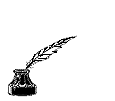Irrefutable questions that Roman Catholics and Orthodox can't answer
|
|
|
Questions for Catholics and Orthodox:
- If the Roman Catholic church gave the world the Bible, being infallible, then why did Rome reject or question the inspiration of James and Hebrews , then later accept it? Conversely, Rome accepted as scripture books that were later rejected. If the Catholic church really is illuminated by the Holy Spirit so that men can trust her as "God's organization", why was she so wrong about something so simple? Should not the "Holy See" have known?
- If the Orthodox church gave the world the Bible, being infallible, then why did the eastern churches reject or question the inspiration of Revelation, then later accept it? Conversely, the east accepted as scripture books that were later rejected. If the Orthodox church really is illuminated by the Holy Spirit so that men can trust her as "God's organization", why was she so wrong about something so simple?
- If the Roman Catholic church gave the world the Bible in 397 AD, then why did many different versions of canons continue to circulate long afterwards?
- If the Roman Catholic church gave us the Bible, why were the two synods of Hippo (393 AD) and Carthage, (397 AD) African councils, and not initiatives of Rome?
- Since the synod Carthage in 393 AD stated, "But let Church beyond sea (Rome) be consulted about confirming this canon", does this not prove that Rome had no direct input or initiative in determining the canon.
- Since the two synods of Hippo (393 AD) and Carthage, (397 AD) were under the control of what would later become the "orthodox church", how can the Roman Catholic church claim they determined the Canon? Would not such a claim be more naturally due the Eastern Orthodox church?
- If the Catholic church, "by her own inherent God given power and authority" gave the world the Bible, why did she not get it right the first time? Why did the Roman Catholic church wait until 1546 AD in the Council of Trent, to officially add the Apocrypha to the Canon?
- Both Roman Catholic and Greek Orthodox church leaders make the identical claim that they gave the world the Bible. If both the Roman Catholic and Orthodox churches make the same claim they gave the world the Bible, why do they have different books in each of their Bibles? Whose "church authority" shall we believe? Whose tradition is the one we should follow?
- Provide a single example of a doctrine that originates from an oral Apostolic Tradition that the Bible is silent about? Provide proof that this doctrinal tradition is apostolic in origin.
- Provide a single example of where inspired apostolic "oral revelation" (tradition) differed from "written" (scripture)?
- If you are not permitted to engage in private interpretation of the Bible, how do you know which "apostolic tradition" is correct between the Roman Catholic, the Orthodox and the Watchtower churches, for all three teach the organization alone can interpret scripture correctly, to the exclusion of individual?
- Why did God fail to provide an inspired and infallible list of Old Testament books to Israel? Why would God suddenly provide such a list only after Israel was destroyed in 70 AD?
- How could the Jews know that books of Kings or Isaiah were Scripture?
- If the Roman Catholic and Orthodox churches both believes that the scripture: "the church is the pillar and foundation of truth" means the church is protected from error then: a. Why do they teach doctrine so different that they are not even in communion with each other? b. How do you account for the vast number of documented theological errors made by the pope and the church in general?
- If the both the Orthodox and Catholic churches follow apostolic oral tradition exactly, how come they teach doctrine so different, that they are not even in communion with each other?
- Both Tertullian and Jerome gave a list of oral traditions that were not found in the Bible. (Tertullian, The crown or De Corona, ch 3-4), (Jerome, Dialogue Against the Luciferians, 8) Tertullian said of these practices that "without any written instrument, we maintain on the ground of tradition alone". These include, baptizing by immersion three times, giving the one baptized a "drink of milk and honey" then forbidding the person from taking a bath for a week, kneeling in Sunday mass was forbidden, and the sign of the cross was to be made on the forehead. Jerome, echoing Tertullian, said that these "observances of the Churches, which are due to tradition, have acquired the authority of the written law". Why does the Catholic church not immerse thrice and allow kneeling? Why do both the Roman Catholic and Orthodox churches not keep any of these traditions, with the exception of thrice immersion by the Orthodox? Why do Roman Catholic churches today have knelling rails in front of every pew? If the "apostolic tradition" was to make the sign of the cross on the forehead, why do both Orthodox and Catholic churches change this to the current practice of the sign on the chest and head? If extra-biblical oral tradition is to be followed, then why don't the Roman Catholic and Orthodox churches practice all of these things?
|
Practice from Tradition |
Orthodox |
Catholic |
|
disown the devil before baptism |
|
|
|
thrice immersed |
|
|
|
Drink milk and honey after baptism |
|
|
|
don't bath for a week after baptism |
|
|
|
kneeling in worship is forbidden |
|
|
|
Sign of cross on forehead |
|
|
|
SCORE What percentage of the oral tradition in 200 AD do Orthodox and Catholic keep today? Worse still, the traditions of Orthodox and Catholic today contradict each other! |
50% |
0% |
|
Tertullian,
The crown or De Corona, ch 3-4 |
||
· As you can see from the chart above, neither Orthodox or Catholic keep the oral tradition of the 2nd century AD. Catholics keep none of it and Orthodox keep 50% of it! Worse still, both these church fight with protestants that you must use their oral tradition but the Orthodox and Catholic oral traditions DIFFER WITH EACH OTHER!!!
· IF ORAL TRADITION IS AUTHORTATIVE, HOW ARE OUTSIDERS SUPPOSED TO KNOW WHICH OF THESE TWO ORAL TRADITIONS IS CORRECT? The solution is that oral tradition is worthless and what we are left with is the BIBLE ALONE.
- Why do Roman Catholics always use 2 Timothy 2:2; 3:14 as Bible proof that extra-biblical oral tradition is to be followed through apostolic succession, when tradition says Timothy became the bishop of Ephesians, which through succession, is now part of the Greek Orthodox church headed out of Constantinople? If 2 Timothy 2:2 proves succession, doesn't this prove the Roman Catholic church is not part of that succession?
- When you see the word tradition, why do you always assume it to be oral tradition rather than scripture tradition, when the Bible calls scripture tradition in 2 Thess 2:15, and Athanasius call scripture tradition: "the Apostolic tradition teaches in the words of blessed Peter, 'Forasmuch then as Christ suffered for us in the Flesh" Athanasius then quotes: 1 Peter 4:1; Titus 2:13; Heb 2:1 (Athanasius, To Adelphius, Letter 60, 6)?
- The Church Fathers believed what Paul said in Eph 3:3-5, that the scripture could be understood by merely reading it. They indicated that the scriptures themselves were clear, so clear, they even criticized the heretics for getting it wrong. If those outside the church and common pew dwellers are unable to understand the Bible themselves as the Roman Catholic and Orthodox churches teach, then why did the apostolic fathers expect the heretics to understand the Bible with their own human skills? (Tertullian, The Flesh of Christ, ch 20), (Athanasius, On the Incarnation of the Word, 56), (Hilary of Poitiers, On the Trinity, Book 1, 35), (Hilary of Poitiers, On the Trinity, Book 7, 16)
- If each individual possessing a copy of the scriptures is an essential pre-condition to sola Scriptura, then how do illiterate Catholic and Orthodox pew-dwellers know the Catholic and Orthodox Catechisms? If illiterate Catholics and Orthodox can have the Catechisms read to them, then why not the scripture?
- If universal distribution of the Bible in every home is an essential pre-condition of sola Scriptura, then how could Catholic and Orthodox pew-dwellers know the message of the Pope before the time of modern instant live communication?
- If the ability to read is an essential pre-condition to sola Scriptura, then how do illiterate Catholic and Orthodox pew-dwellers know the Catholic and Orthodox Catechisms? Would not the same logic apply to illiterates in the Roman Catholic and Orthodox churches? If Catholic and Orthodox laity can "know the truth" by hearing the catechism read to them, then why not illiterate Christians when they hear the Bible read?
- If the ability to read is an essential pre-condition to sola Scriptura, then how do the illiterate Catholic and Orthodox commoner know for certain that the priest is faithfully teaching the dogma, canons and edicts of councils if they could not read the documents?
- How do the Catholic and Orthodox commoners who can read, know for certain that the priest is faithfully teaching the dogma, canons and edicts of councils if they did not possess copies of such documents?
- If the earliest, universal oral tradition clearly states that Paul wrote the book of Hebrews, why does the Roman Catholic church question this tradition to this day? (The Orthodox, are at least consistent in accepting this tradition, not that they are correct.)
- Name one sure way or method, that a new believer in Christ, can know that the Orthodox church is the one true church. (The challenge: make sure this method cannot apply also to the Roman Catholic church.)
- Name one sure way or method, that a new believer in Christ, can know that the Roman Catholic church is the one true church. (The challenge: make sure this method cannot apply also to the Orthodox church.)
- If the personal illumination of the Holy Spirit upon each believer to understand the Bible is not a valid method of determining truth because of the many denominations that use this approach, then does it not follow that apostolic succession and oral church traditions are likewise invalid because the Roman Catholic and Orthodox churches are two denominations that use this method yet are divided on doctrine? Does this not prove both methods are wrong and a third method, one which we and the apostolic church practiced must be the correct method?
- If sola Scriptura cannot be the correct method of determining truth because of the religious division among churches that claim to use sola Scriptura, then does this not also disqualify the Roman Catholic and Orthodox churches method of using tradition, since they are divided against themselves?
|
|
Visit one of our churches in your own home town. |
|
|
Email your comments to the author Steve Rudd |
By Steve Rudd



